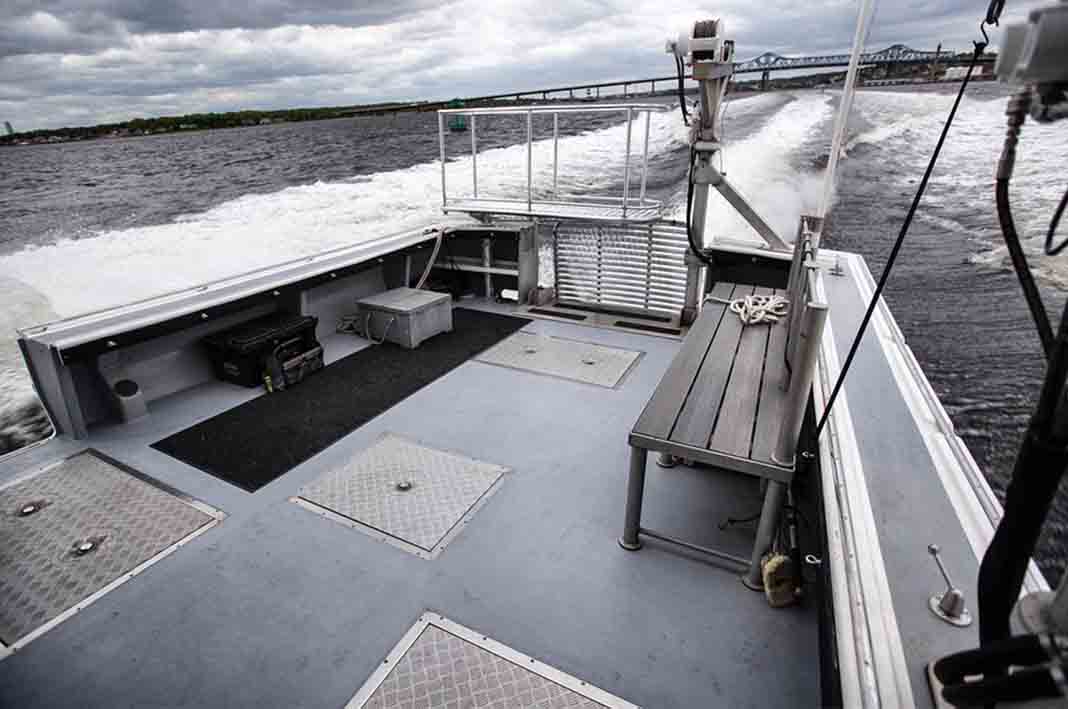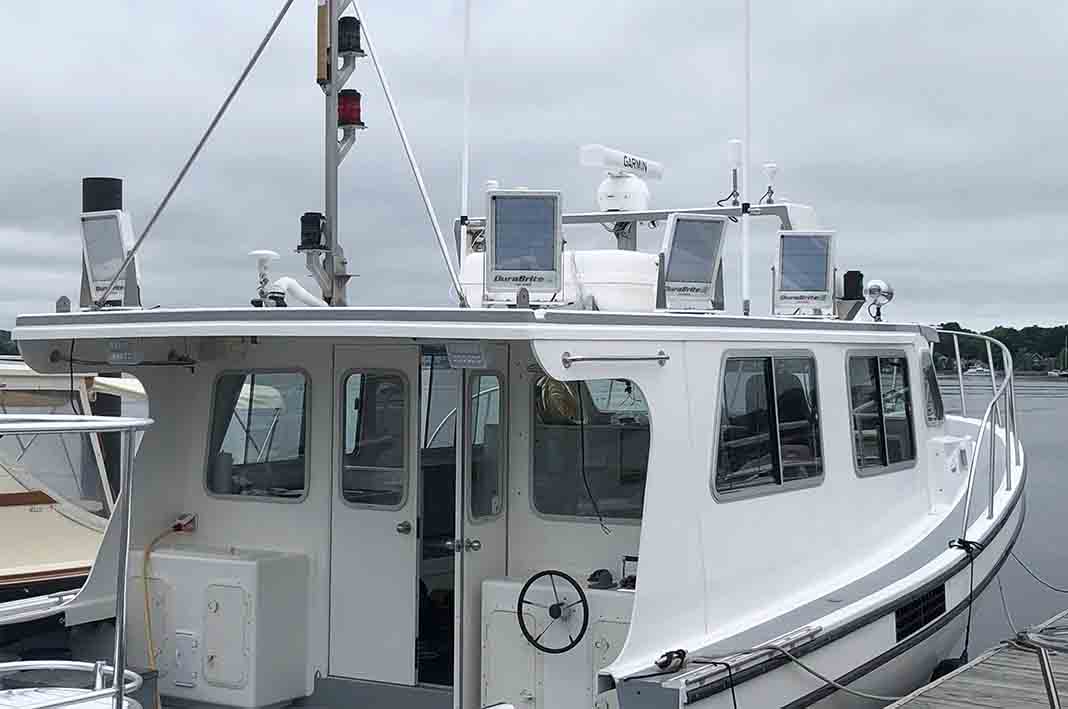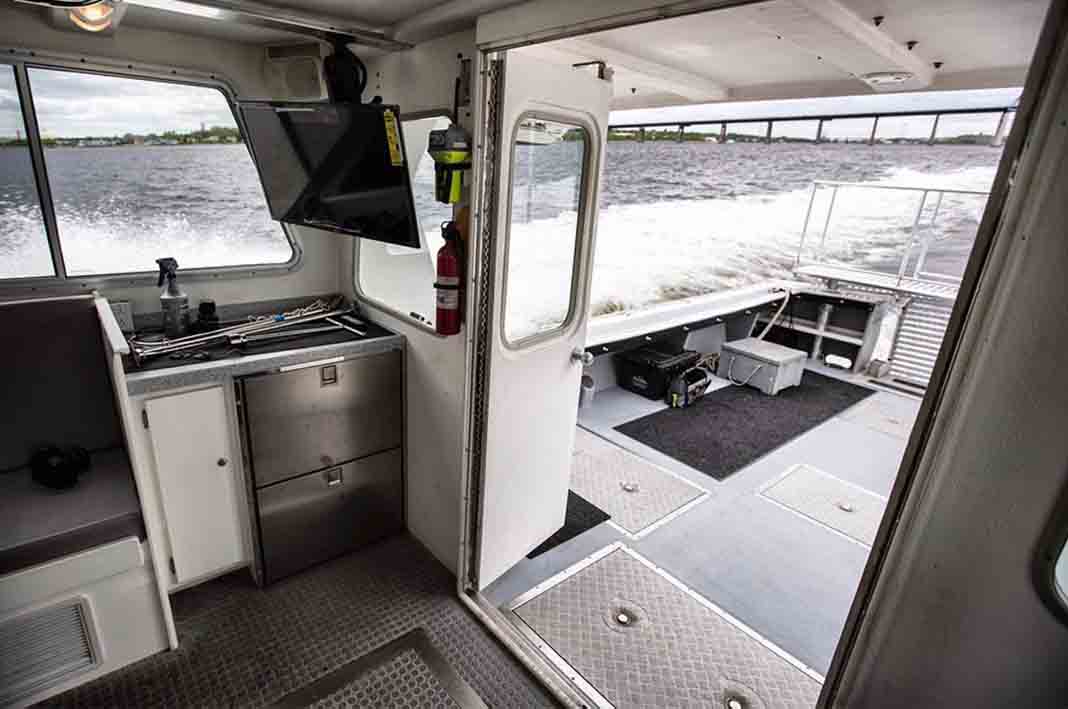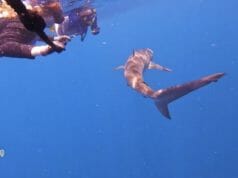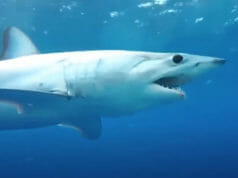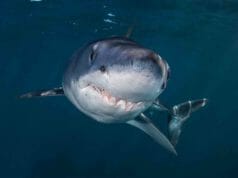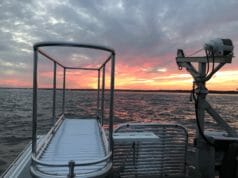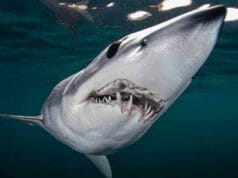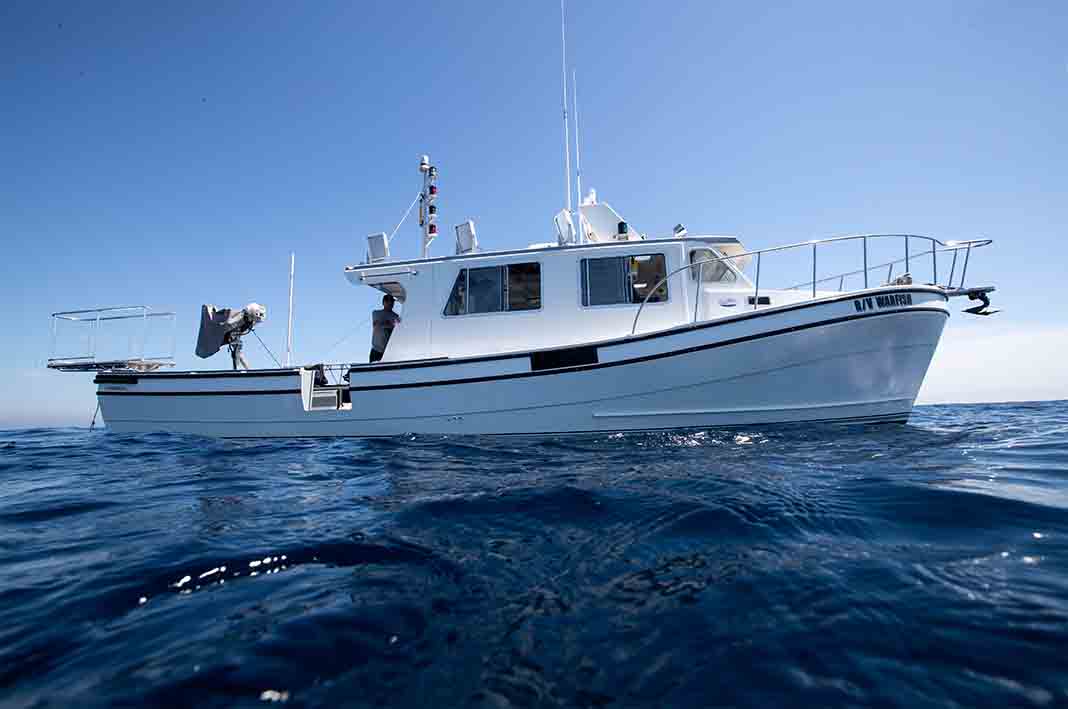
Atlantic Shark Institute cofounder and chairman Jon F. Dodd has been fascinated with sharks for as long as he can remember.
“The design, the grace, the beauty, the strength,” He said. “It’s what led me to the University of Rhode Island for a degree in biology with an emphasis on fisheries.”
Dodd has caught and released about 1,000 sharks and tagged more than 500 of them. In recent years, he’s grown more concerned about the long term health of sharks and the need to understand the issues and challenges they are facing. The best avenue to do that was to cofound the Atlantic Shark Institute with Executive Director Joe Romeiro.
“Right now I believe the future of sharks is uncertain for many species,” Dodd said. “The challenge is to demonstrate, through quality research and science, what we are dealing with and what needs to be done.”
It is estimated that 100 million sharks are taken out of the ocean every year – that’s about 275,000 per day.
“Let that sink in for a minute,” Dodd said. “Clearly that number is not sustainable for many species of shark.”
With 500 species of shark in the world, some are listed as endangered while others appear to have healthier numbers. Atlantic Shark Institute is committed to funding and assisting the best shark researchers in the Atlantic.
Their goal is to get critical answers to complex questions about various species of shark, including the mako, thresher, white, porbeagle and more.
“Every day brings more answers and more questions,” Dodd said.
Either way, Atlantic Shark Institute has been making waves in ways that are making a difference. One example is the first ever Rhode Island shark array.
“Today, we rely on observations, catches and sometimes guestimates as to what shark may have been seen,” Dodd explained. “This new shark array takes away some of the ambiguity and as a result, has far more value to science and research.”
Acoustic receivers are deployed in various locations around the state of Rhode Island. Whenever a tagged shark swims within a half mile (sometimes more depending on the conditions) of the receiver, the shark is recorded. Atlantic Shark Institute is then able to share that data with researchers and scientists worldwide.
“It takes some of the guesswork out of what species of sharks are visiting our waters, where they are, when they are in that area and for how long,” Dodd said. “All of which is invaluable to researchers and scientists.”
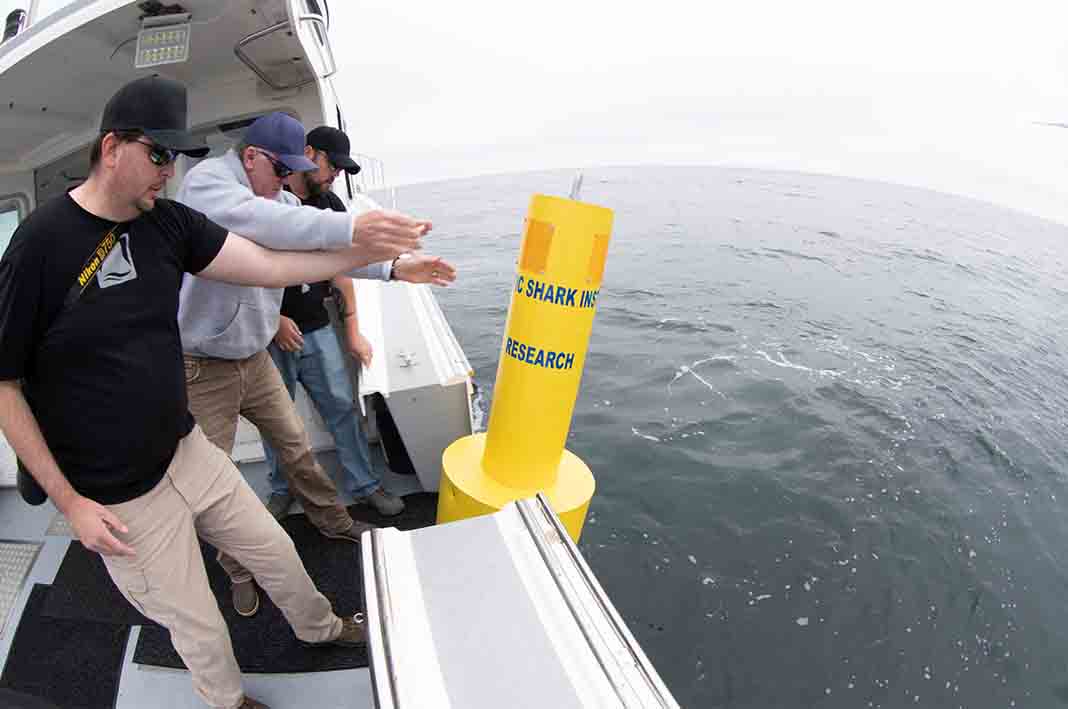
Of course, the shark array wouldn’t even be possible without the help of Atlantic Shark Institute’s highly-equipped, 45-foot research vessel, R/V Warfish.
“The shark array receivers are large and heavy,” Dodd said. “We could never retrieve the data without the R/V Warfish and the hydraulic lifts that allow that to happen.”
Dodd explained that the receiver needs to be completely out of the water. With the tide and the length of some of the chains expanding more than 100 feet, it couldn’t be done without the R/V Warfish.
It makes sense, then, why some of the aforementioned adjectives Dodd used to describe sharks also apply to the vessel used to research them. The design, grace, beauty and strength of this boat are unmatched by others in the water.
“The R/V Warfish has wonderful tools and elements that make it a great platform for these studies,” Dodd said. “It takes the best elements from many vessels and puts them all in one place.”
“The 360-degree pulpit or the wrangle pulpit gives a huge advantage to wildlife filming,” R/V Warfish Second Captain Lauren Benoit said. “It also gives the wrangler an advantage because they can control the movements of the sharks better from a higher position.”
“It’s a great place to view, photograph and assess sharks as they engage the boat,” Dodd added.
The 51″ swim step gives people easy access in and out of the water, while the two heavy duty cranes and hauler are critical for receiver deployment and retrieval.
When Atlantic Shark Institute teams up with Dr. James Sulikowski from the University of New England and Lisa Natanson from the National Marines Fisheries Service to investigate porbeagle sharks in the Gulf of Maine during very cold months, R/V Warfish provides comfortable transport.
“The size of the boat, the platform, the heated cabin and more make the boat a must for us and our research partners for that study,” Dodd said.
R/V Warfish is able to accommodate four people up front and up to six crew overnight with a full bathroom and shower, hot water outside shower and a stainless steel refrigerator.
Brand new touch screen navigation is able to feed to the 32′ plasma HDMI compatible screen on board. There’s Sirius satellite radio and a satellite phone, along with Iridium Go, a device that helps the crew stay connected while cruising 100 miles offshore.
“It is a great tool for production companies to be able to communicate with editors and producers back on shore,” Benoit said.
Benoit has worked on a number of shark-related video projects. She explained how the boat’s removable side door is beneficial to capturing a great shot without disturbing animals that may be shy around the boat.
Then, there’s the impressive range. R/V Warfish is equipped with a C15 – 850 horse power caterpillar engine with a fuel capacity of 900 gallons. The crew can go where the fish are without any issues holding them back.
There’s two light boxes for deck work and lighting, four LED panel extendable lights for night diving and deck work, a FLIR night vision thermal camera, camera array for security with the ability to record plus side and bottom scan sonar mapping. Not to mention, the crew has the best emergency and safety equipment with them at all times.
The list goes on and the boat is awesome, but it serves a more crucial purpose of facilitating important strides toward shark conservation and awareness.
“Sharks are inquisitive, intelligent and remarkable works of nature,” Dodd said.
With so many sharks misconstrued as dangerous killers, it’s important to realize sharks are not out to get people. In fact, sharks who are slow growing and slow to reproduce are in danger of dying out.
“As a result, they must be well understood and well managed,” Dodd said. “That is the reason to invest both time and money into these critical research projects.”
For more information, check out Atlantic Shark Institute, Rhode Island Shark Diving and www.rvwarfish.org.




